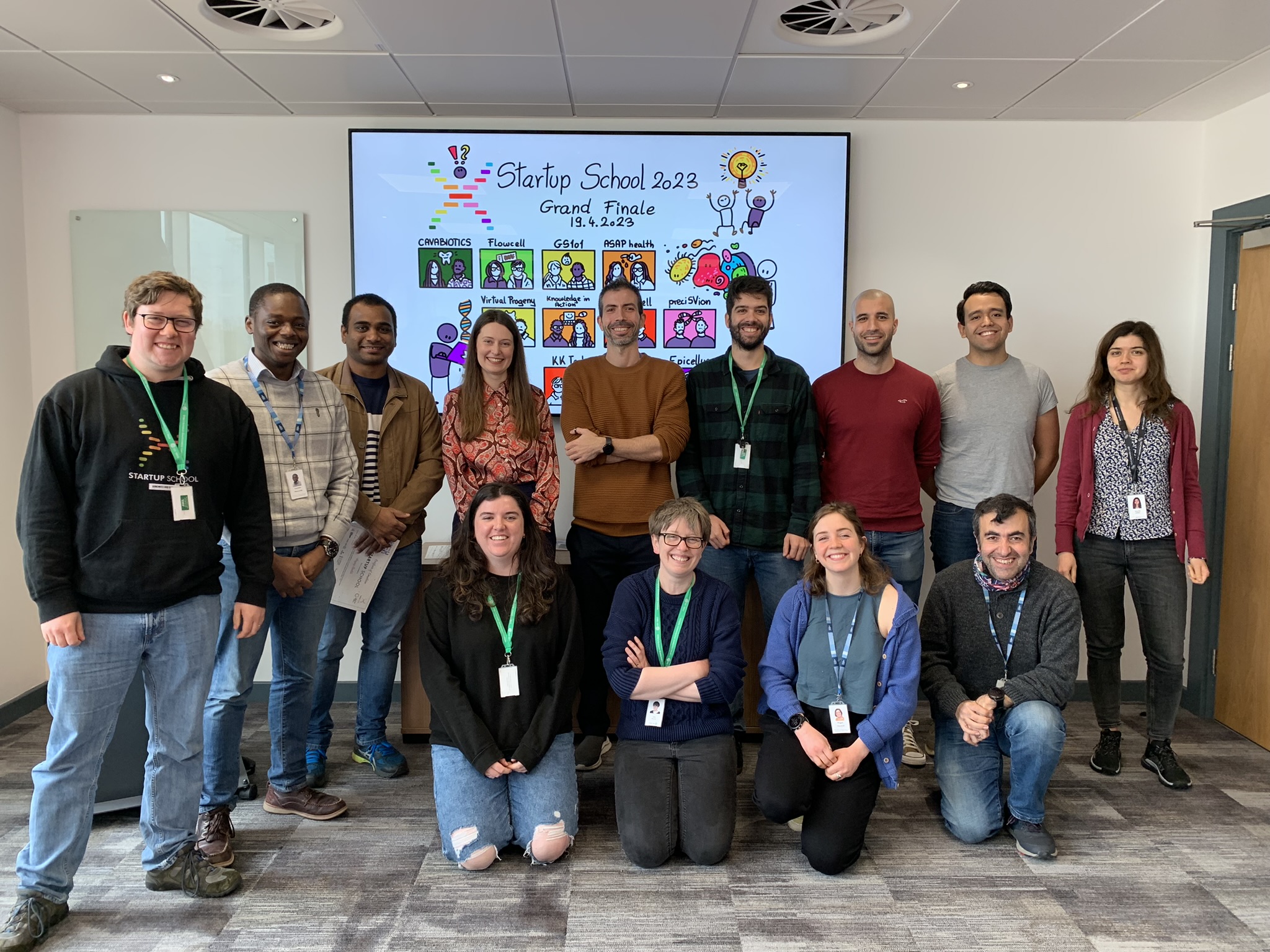Wellcome Genome Campus helps win Innovate UK funding to explore new ways to ease Cambridge traffic with autonomous vehicles

A consortium including the Wellcome Genome Campus, Cambridgeshire County Council (Smart Cambridge) and RDM Group, has won funding for a Cambridge Autonomous Bus System Feasibility Study as part of Innovate UK’s Connected and Autonomous Vehicles competition. The £250K investment, co-funded by the UK’s innovation agency, Innovate UK- will be used to explore and gather information in support of the business case for what could be a £3-£5 million driverless shuttle service.
Cambridge suffers from an acute congestion problem which demands radical action and innovative thinking. The feasibility study will focus on two initial geographic areas as test cases for the wider business opportunity for utilising autonomous shuttles designed by RDM Group.
The first area centres on the Cambridge Biomedical Campus. It has more than 12,000 workers, many working varied shift patterns and serving vital local facilities including Addenbrooke’s Hospital. The feasibility study will explore the potential for an out-of-hours driverless shuttle service on the fixed path between Trumpington Park and Ride and the Cambridge Biomedical Campus.
Noelle Godfrey, Programme Director for the Connecting Cambridgeshire and Smart Cambridge programme, which is supported by the Greater Cambridge City Deal, said: “We welcome the success of our bid to Innovate UK for this collaborative project, which is testament to the power of local Councils, Universities and business working together in Greater Cambridge to find innovative solutions to improve the transport infrastructure. This project will complement Smart Cambridge’s on-going work with others to help transform the way people travel into, out of and around the city.”
The second area focuses on investigating a driverless shuttle service between the Wellcome Genome Campus and Whittlesford Parkway railway station, on a new off-road pathway.
The Wellcome Genome Campus is working to find a solution to the Campus’ challenge of how to easily connect its 2,600 workers from a wide catchment area to the local station, which is 2.9km away. The Campus has experienced significant growth in employee numbers in recent years, and has a long-term expectation of doubling the number of workers over the next decade. Making it easier to travel to work by train is an important component of a sustainable transport strategy.
The feasibility study will investigate key questions about the demand and impact of such a service on the areas, the type of vehicles and connected systems needed, the best routes for the service and what is the right operating model for the service. RDM will design and manufacture a larger version of its four and eight passenger self-driving pods to suit the location and customer needs. The new pods will be designed to accommodate wheelchairs, mobility scooters, and will carry bicycles in addition to seated passengers.
Martin Dougherty, Chief Operating Officer of the Wellcome Trust Sanger Institute and Wellcome Genome Campus said: “The Wellcome Genome Campus is not only a world-leading centre for genomic research, but it is also a green campus. We employ a wide range of high-tech solutions to minimise our impact on the environment. Exploring how driverless electric vehicles could provide our staff with easy access to the nearby rail station may offer opportunities to further minimise our carbon footprint.”
Wendy Arntsen, Head of Campus Development at the Wellcome Genome Campus, said: “It is very exciting to be part of this project and for the feasibility study to be recognised by Innovate UK as a cutting-edge technological solution for the traffic issues that many of us face. Our next steps will be to explore potential routes and design options for a new kind of pathway capable of combining travel by bike, on foot or by driverless vehicles. We will be consulting our neighbours on these possible routes and seeking their views as part of this feasibility study.”
Planning consent and funding for a new pathway are still to be explored. This feasibility study will be the first step in this project.
ENDS
Contact details:
Emily Mobley
Press Office
Wellcome Genome Campus
Cambridge, CB10 1SA
Phone: 01223 496851
Email: press.office@sanger.ac.uk
Notes to Editors:
Wellcome Genome Campus
Wellcome Genome Campus is home to some of the world’s foremost institutes and organisations in genomics and computational biology, committed to delivering life changing science with the reach, scale, and imagination to solve some of humanity’s greatest challenges. It is home to the Wellcome Trust Sanger Institute and to the European Molecular Biology Laboratory’s European Bioinformatics Institute (EMBL-EBI).
Innovate UK
Innovate UK is the UK’s innovation agency. It works with people, companies and partner organisations to find and drive the science and technology innovations that will grow the UK economy. www.innovateuk.gov.uk
RDM Group
RDM Group is a privately-owned company based in Coventry in the UK. With nearly 25 years’ experience in Tier 1 automotive technology and parts manufacturing for the vehicle industry, the company employs 65 people, with almost half of the workforce in technical roles.
RDM Group has established itself as a leading designer, developer and manufacturer of autonomous vehicles, including the LUTZ Pathfinder, AutoDrive UK and the Pod Zero. The company boasts specialist skills in electronics, software, vehicle and safety engineering, and has an in-house Autonomous Control System development team.
In addition to its headquarters in Coventry, the company has recently opened offices in Adelaide, South Australia and Houston, Texas. www.rdmgroup.co.uk
Smart Cambridge
The Smart Cambridge programme is collaborating with academic and business partners to explore how data, innovative technology and better connectivity can be used to address city challenges such as mobility and air quality in and around Cambridge. The work is supported by the Greater Cambridge City Deal through the Connecting Cambridgeshire programme. Find out more at www.conne ctingcambridgeshire.co.uk/smartcambridge


